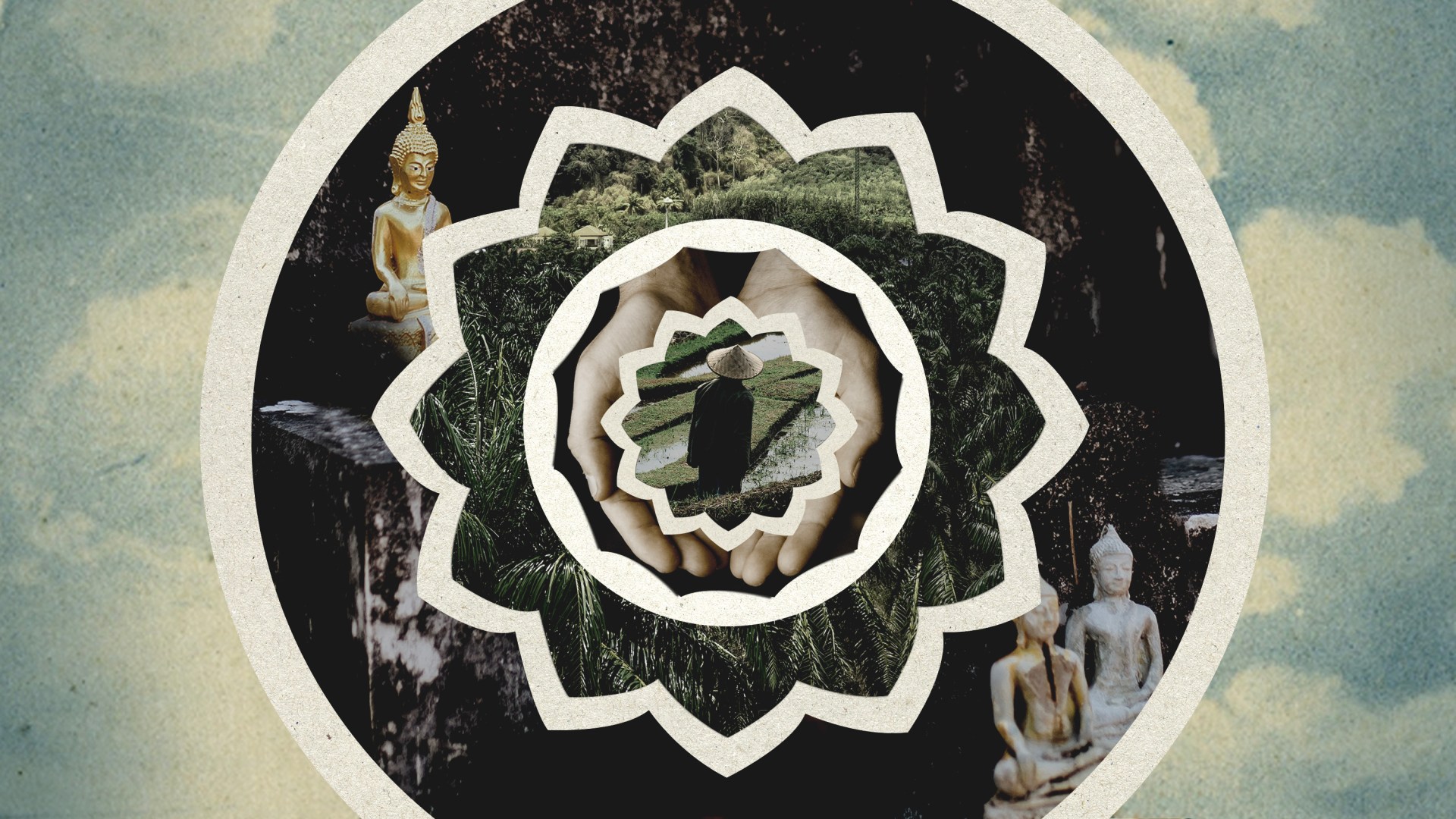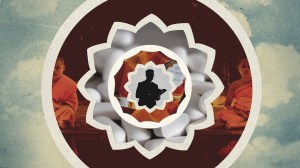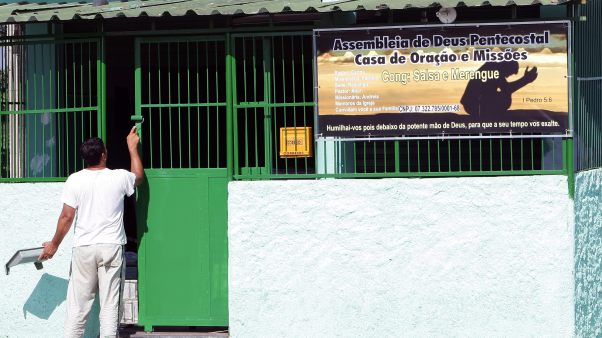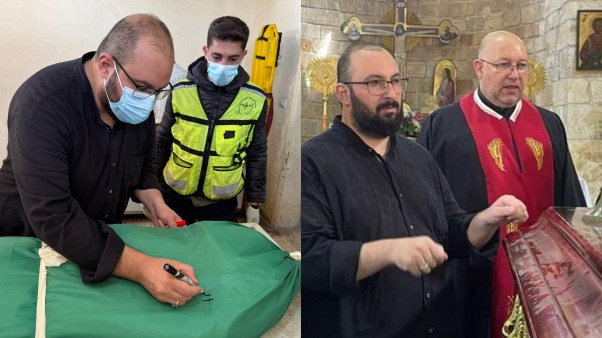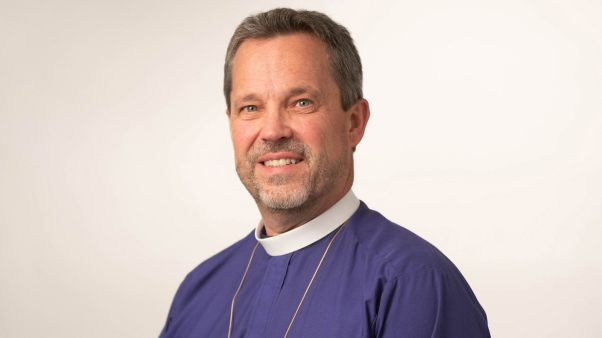In this series


For the first nine years of Nantachai and Ubolwan Mejudhon’s university ministry in Bangkok in the ’70s, the couple approached Thai students and passersby with a yellow booklet, a friendly smile, and the question, “Have you heard of the Four Spiritual Laws?”
Following Cru’s evangelism strategy, they walked students through God’s love, their sin, Jesus’s death, and their need to receive Jesus. Some students would politely agree to accept Christ to get out of an uncomfortable conversation. Not surprisingly, many of the “converts” quickly lost faith in God.
The results of Western-style evangelism in Bangkok left the Mejudhons, who found Christ while studying abroad in the West, discouraged and with little fruit to show for their well-intentioned work.
Their challenges are common in the history of missions in Thailand. Even though the Southeast Asian country is a hotspot for missionaries due to its religious liberties, accessibility, and low cost of living, Christianity has been slow to spread in a country where Buddhists make up 93 percent of the population. After nearly 200 years of Protestant missions, only 1 percent of the country is Christian.
In the last installment of Engaging Buddhism, Sage, a Thai-Chinese Australia in Sydney, mentioned that “there’s something about the soil that has prevented the gospel from taking root in the way it has in other parts of the world.” In this installment, we ask: Is there a better way to reach the Thai people? The Mejudhons have spent the past 50 years seeking to answer that question. From their time working on Bangkok campuses and ministering in a rural town in northern Thailand, the Mejudhons have developed a contextualized form of evangelism that flows from Thai sensibilities: Approaching people with meekness.
After seeing their early attempts at evangelism fail, the Mejudhons began to focus on cultivating genuine friendships, speaking positively about Buddhism-infused Thai culture, and presenting the gospel in a way that shows Thais the benefits of the faith rather than confronting them. This allowed the gospel to permeate through their relationship, rather than trying to convince Thais to believe in Christ through apologetics and theological presentations.
Over time, 10 to 20 times more people ended up with a saving faith in Jesus, they said. For the past 23 years, the Mejudhons have been teaching their form of ministry through meekness to missionaries coming to Thailand. Through intensive seminars at their church, Muang Thai Church in Bangkok, Nantachai and Ubolwan (who are now 79 and 77 respectively) have trained 400 missionaries.
In Nantachai’s 1997 dissertation, he boiled down their philosophy: “A combination of Thai culture and biblical approach is more practical to the Thai than the current combination of Western culture and theological approach.”
From Buddhism to Christianity
The Mejudhons came from devout Buddhist backgrounds. Like most young Buddhist men on their path to adulthood, Bangkok-born Nantachai became a Buddhist monk at age 18 for three months. Ubolwan, who is from Chonburi in eastern Thailand, studied and later taught Buddhist philosophy at a university.
In 1970, the Thai government sent the two scholars abroad to study. Nantachai went to California to study engineering. Ubolwan, his fiancé at the time, went to New Zealand to study English and became a Christian there. During their long-distance relationship, the couple wrote a total of 700 letters discussing Buddhism and Christian theology as Nantachai tried to persuade her to return to Buddhism. (They later published some of these letters in a book.)
Finally, Nantachai decided he needed to do his own research before declaring there was no God. He walked two and a half miles to buy a Bible at a bookstore, which he read from cover to cover, studying it for 10 hours each day. The more he read, the more he felt the Bible was special. He fell in love with Jesus, started going to church, and committed his life to Christ after reading 1 Corinthians 13.
In 1972, Nantachai and Ubolwan began their ministry to university students in Bangkok. As they watched Western missionaries talk to Thai students about heaven and hell, they realized that the message didn’t translate well because Thais tend to value the present over the future. Religion in Thailand is felt, not rationalized, Nantachai said, and what resonated more was conveying how Christ was a “man for others” in that he can deliver people from their fears.
Nantachai and Ubolwan went abroad again to pursue their doctorates at Asbury Theological Seminary in the ’90s, both writing dissertations about the importance of meekness in missions in Thailand. A number of Christian groups in Thailand purchased their theses after it was published, and the positive responses they received led them to host seminars for missionaries in their church.
‘Blessed are the meek’
One way the Mejudhons seek to respect Thai culture in their evangelism is by engaging whole families rather than individuals. When a Thai becomes a Christian, it creates division in the family as parents view their acceptance of a different faith as a rejection of their Thai identity. This is often a great source of tension and isolation for new believers. So, when the Mejudhons first get to know their students, they begin forming a relationship with the parents as well. This way, the missionaries are not seen as “stealing” their family members.
The Mejudhons always instruct new Christians to ask their family for permission to accept Christ as their Savior and to be baptized. If the parents said no, they ask students to temporarily postpone their baptisms and obey their parents’ wishes. The Mejudhons would wait to see how the student’s demonstration of Christlikeness would influence the family. If the parents still refused to give permission after the waiting period, they would go ahead and baptize the child.
During the baptism, the church honors parents by inviting them to be a part of the ceremony by having them present a Bible to their children. They encourage parents to teach their children to be faithful to what they believe, even if their parents are Buddhists.
“Our attitude toward the family of those new converts will determine the response of the Buddhist family,” Nantachai said.
In the Western mind, the word “meekness” connotes weakness or a wavering spirit, but the Mejudhons use it to describe someone who is gentle, humble, considerate, and friendly. Jesus was meek and meekness is a fruit of the Spirit, Nantachai pointed out.
In order to reach Thais in a spirit of meekness, Western missionaries need to shift their mindsets and their methods. Rather than expecting to see large numbers of converts when they arrive in Thailand, Nantachai encourages them to understand missions as a long-term commitment to building genuine relationships with no strings attached. By living in Thai communities and forming friendships, foreign missionaries can slowly build up an understanding of how to present the gospel there.
“A number of missionaries have the idea that Christians have to count souls and report numbers of people saved to a church or organization as a way of evaluating their success,” Nantachai wrote in his dissertation. Yet, the question “how many members do you have in your church?” was never asked in the New Testament.
Buddhist beliefs as a stepping-stone to Christianity
To understand the worldview of the people they are ministering to, missionaries first need to understand Buddhism, say the Mejudhons.
Many missionaries studied the Thai language, but didn’t study Buddhism or Thai culture in an immersive manner, and consequently came off as aggressive when they skipped over relationship-building, focused on outcomes, and ignored the Thais’ value system, Nantachai said.
When sharing their faith, missionaries and Thai Christians should study, respect, and note Buddhism’s positive aspects and recognize that God loved Siddhartha Gautama, also known as the Buddha, Nantachai added. They should understand that certain aspects of Buddhism that are true are God’s truths, since God is the ultimate truth, and acknowledge that God loves every person because he created them.
With this mindset, missionaries “have more capacity…to listen to their wrong ideas in their belief systems, to empathize with their stubbornness in their own faith, and to have patience, kindness, and understanding, in searching for more understanding from them,” Nantachai argued in his dissertation.
Thais are concerned with religion’s practical outcomes. If Christianity helps and benefits them, they will be more interested in it, Nantachai said. While Buddhism focuses on human needs and actions, Christianity focuses on God’s purpose and provision. When calamities or crises occur, Buddhists are forced to look for help outside of themselves, sometimes going to the temple or finding other ways to cope.
This is an ideal time for Christians to gently introduce how God is a provider and brings hope, said Nantachai. Christianity offers something that Buddhism can’t: A personal relationship with a spiritual power, he noted.
“It is when people feel that they [can] no longer cope by themselves and they need help [from] outside that Christianity offers good news,” Nantachai wrote. “Christianity attracts people in trouble for it tells them that they can turn to God and depend on God's help.”
Planting seeds of the gospel in rural Thailand
After completing their dissertations, the Mejudhons moved to a small village in Roi Et province in northeastern Thailand to see how witnessing through meekness worked in a different context. For 14 years, they taught at a local school and invested in the lives of both their students and their families.
Teachers are highly regarded in Thai society, so their positions granted them access into the villagers’ lives. They developed friendships with students’ parents, visited their homes, helped them plant and harvest rice, and listened to their problems.
Because the Mejudhons had a good relationship with the school staff, they were able to share the gospel with the students. One hundred students became Christian during their years in Roi Et. Some of their families chose to follow Christ as well.
“Many of them became Christians not because I shared the gospel, but because we loved them, cared for them, and were concerned about their social welfare,” Nantachai said. “Your duty is not to ‘pull’ them to become a Christian, but rather to love them in a sincere way. And when the relationship is so strong, then you can share whatever you want to share, and they will listen to you, and they will become Christian.”
At the same time, they faced challenges in getting new believers to stay committed to their faith. “It’s easy for them to leave Christianity if they see Christianity isn’t giving them what they want or need,” Nantachai said. It seemed that the mindset of “easy to believe, easy to throw away” was true of both Buddhism and Christianity. To address this, Nantachai found it important for Thais to start hearing the gospel in elementary school age so God’s Word would be grounded in their hearts and minds.
The couple started a church in the town and left it in local hands when they moved in 2014. Today, they are in Ranong, a town in southern Thailand, where they are planting another church and teaching English in their home. Compared to the north, the locals find it more difficult to believe and accept Christ, but once they do, they continue to follow Jesus their entire lives. All six students in their first class in Ranong became Christians and are now studying in university.
One of their former students from Roi Et, Ex Moo Ko, who is ethnically Burmese but born in Thailand, recently became a Christian because of their witness. Currently a senior in high school, Ex Moo Ko has known Nantachai and Ubolwan since the third grade.
The Mejudhons are different from other teachers because they tried to understand her and the other students, Ex Moo Ko said.
“They listened well, and they are wonderful counselors,” she said. “They never criticized or scolded us. They tried to understand and adapted themselves to my friends and me.”
The couple never forced their faith on her, and because of their relationship, she wanted to listen to Nantachai preach on Sundays, Ex Moo Ko said.
“When he stopped teaching [at the school], we pleaded with him to continue the teaching because we benefit from putting the Word into practice,” she said.

